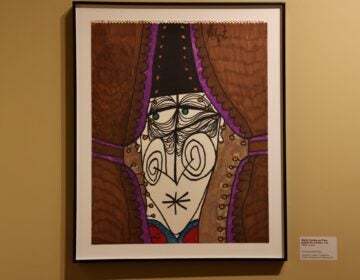Princeton professor wins MacArthur 'genius' grant
Research psychologist Betsy Levy Paluck wins major prize for her work in conflict resolution.
Listen 0:00In the 1992 hit by En Vogue, “Free Your Mind and the Rest Will Follow,” the chorus offers advice to overcome prejudice:
“Before you can read me you gotta learn how to see me,
Free your mind and the rest will follow.”
But current science suggests that might not be altogether true.
“I would never be one to contradict En Vogue. I was raised on En Vogue,” said Betsy Levy Paluck, a professor of psychology at Princeton University.
Loyalties to ’90s crossover R&B aside, Paluck’s research into conflict resolution in large populations dealing with prejudice and violence suggests a change of behavior hinges less on freeing your mind or altering your beliefs, moreso on sensing a shift in what your peers expect.
“The idea here is that we should change the temperature of a group, rather than change each person in the group,” said Paluck. “We should try to change their perception of what is socially acceptable in the group.”
Paluck’s work in cognitive psychology over 15 years has just earned her a MacArthur Fellowship. She is one of 24 scientists, artists, and designers awarded the “genius” grant for 2017.
“I think all of us have this sense that we’re behaving according to our beliefs and how we personally feel, but sometimes we have the phenomenological experience that we’re acting in ways we don’t totally agree with,” she said. “We’re reading the room and we do something different.”
She tested that theory in a big way in the aftermath of the 1994 genocide in Rwanda, when the ruling Hutu people systematically slaughtered more than 800,000 members of a rival group, the Tutsi.
A decade after the bloodshed, when tensions between the rival groups were still high, Paluck studied the cultural effect of a popular radio soap opera infused with messages of tolerance. For a year, she followed audience reactions to the episodic drama.
She discovered the soap opera did not change the Rwandans’ personal beliefs, prejudices, or animosity toward rival groups, but nevertheless changed their behavior because they felt that tolerance had become the social expectation.
“The media doesn’t tell us what to think, it tells us what other people are thinking,” said Paluck. “Mass media and pop culture provide cues to what is socially acceptable and socially desirable. These perceptions might have a really big influence on how we behave.”
Paluck said the Rwanda project had a strong activist motivation — it was meant to alter social behaviors to reduce violence. Since then, Paluck has used a similar set of tools to study teenage bullying in New Jersey high schools.
The key in New Jersey was to identify students who had a disproportionate influence over their peers, then encourage them to behave according to a particular standard, i.e. no off-color jokes or teasing. The influence of those individuals rippled through the student body, and conflicts decreased an average of 30 percent over the yearlong project.
Paluck is one of the few people in cognitive psychology doing this kind of social work. In recent years, she said her field has been focused on how the mind works, rather than how groups of people behave.
“We became very inward-focused, studying the mind and its intricate processes, and I benefited from all that work,” said Paluck. “But my passion was really for going on into the world and doing studies that re-engaged with people in the wild.”
The MacArthur Fellowship comes with a $625,000 prize, which Paluck wants to use to train students to embed with non-governmental agencies around the world as activists-in-residence, and provide psychological tools toward their social goals.
WHYY is your source for fact-based, in-depth journalism and information. As a nonprofit organization, we rely on financial support from readers like you. Please give today.





